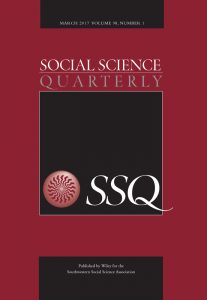The larger, the poorer, the more penalized families: an Italian perspective
In Italy, as in most other advanced economies, large families are much less common than in the past. But does this mean that their needs should not be specifically considered by social policy? This question is at the heart of an article we recently published on the International Journal of Social Welfare titled “The large family penalty in Italy: Poverty and eligibility to minimum incomes”. This blog article has the aim of delivering its main results to the broader public....







1468-0491/asset/society_affiliation_image.gif?v=1&s=859caf337f44d9bf73120debe8a7ad67751a0209)